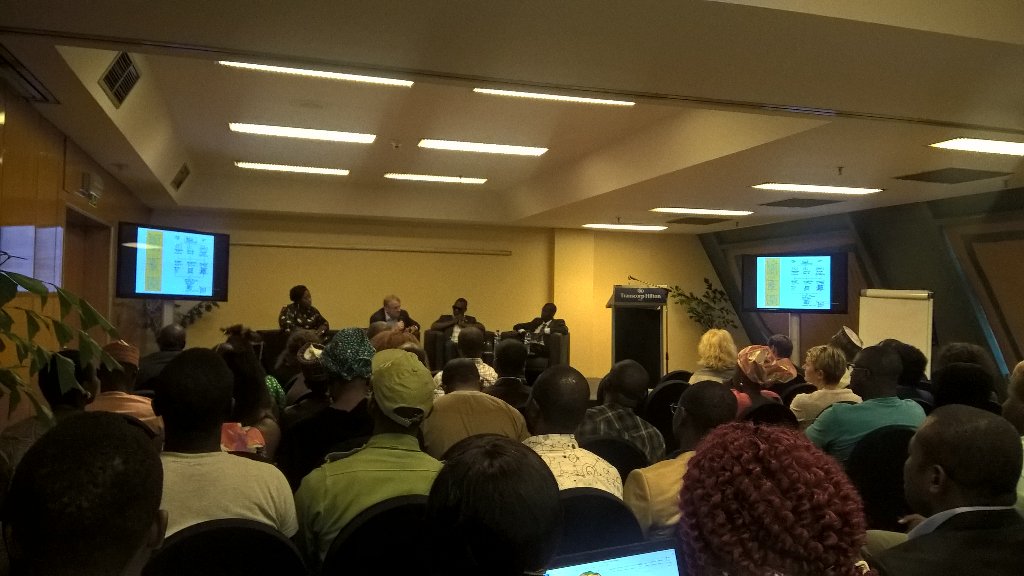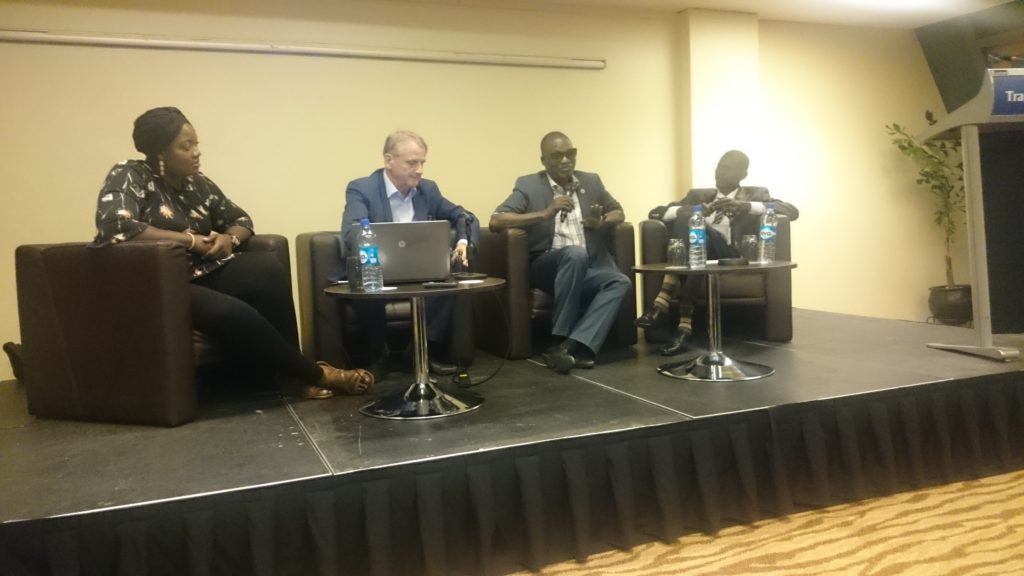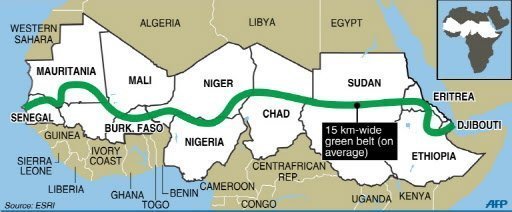On the 20th of September, Institut Francais du Nigeria brought together urban planning stakeholders to discuss what urban planning and environmental solutions are right for Nigeria’s Federal Capital, Abuja. The city, being one of the few purposely planned cities in the world, is the seat of power in Nigeria, facing high urbanization rate with all the associated consequences such as environmental pollution, urban sprawl into green and arable lands, informal settlements, traffic congestion, etc.
The debate was important as cities are now transforming economies. They are the growth engines of the future offering greater opportunities for employment, education and prosperity. There is a growing challenge that a city like Abuja must provide efficient public services while ensuring sustainable development and continuous economic growth.
The panel discussion was organized as part of the European Union Climate Diplomacy Week. Enugu Niger Hall of Transcorp Hilton was filled to capacity on Tuesday evening, with a few people (fortunately and unfortunately) standing. The evening kicked off with the screening of a video on urbanization and its ill effects.
Three introductory speeches by the French Ambassador to Nigeria, a delegate from the European Union in Abuja and a representative from the Climate Department of the Federal Ministry of Environment, followed the introductory video.
Understanding Planned cities
After the Cultural Attaché of the French Embassy invited the 3 panelists, Mr David Mangin, Mr Luka Achi and Ms Fatima Ademoh and myself, the moderator, to the high table, a one hour discussion ensued between the four of us. I started with the French Urban Planner, Mr David Mangin in a ping pong questioning format. He elaborated on what planned cities should be like and what they should do to reduce ecological problems. Much of the focus should be on an integrated condensed development providing all the necessary social amenities for residents in a particular neighbourhood, in essence, increasing community connectivity and reducing travel needs. But the most important of the services is ensuring efficient transportation system within the city. Urban mass transit services should be sufficient enough to convey people from one part of the city to the other, thus ensuring decongestion of roads.

What is Abuja like?
Understanding Mr Mangin’s ideal explanation of what planned cities should be, Mr Achi, who has worked with the Federal Capital Territory Administration, the agency responsible for the administration and development of Abuja, provided local knowledge of what the initial master-plan of Abuja was like and what problems it is facing. Chief among them is urban sprawl, lack of efficient public transport and pollution. Specifically, air and noise pollution emanating from vehicle exhausts, generators and foul air from waste . He talked about how there has been an immense pressure by people intending to change the initial master-plan, such as converting green areas into residential and other purposes. At his current posting of being the President of the Nigerian Institute of Town Planners, they are engaged in advocating for better planning policies in Abuja.
Solving the Environmental Problem
The waste situation in Abuja was brought to light by Miss Fatima who is involved in converting waste to energy in Kuje Area council, a town just outside of Abuja on your way to the airport. Daily, about 400 tons of waste is generated in Abuja, and only about 40% is hauled away, Fatima stated. She scavenges landfills in Gwagwalada for organic wastes and feed it to the bio-digesters at her energy project in Kuje. The project, funded by Power Africa USADF, started in October 2015 and will soon be completed. The project will provide access to stable electricity to the residents of Kuje. This initiative, if replicated, will provide jobs to people and solve Abuja waste problems.
Word from the Audience
After the discussions with the panelists, it was extended to the audience. Listeners contributed with lots of comments and questions. Some commented on the issue of making Abuja a walkable city, others wanted to know how the other big cities in Nigeria will be managed and made sustainable. Our co-founder at Green Habitat Initiative, Abdulmumin Tanko had this to say about the event;
”Of all I have listened from the panelists and other contributors, the city of Abuja is not half what it was planned, at least speaking from an environmental perspective. Mr. Achi came in handy with some revelations about the original Abuja master plan and how it was truncated (constantly manipulated). It is rather interesting knowing that the city wasn’t planned to have this large concentration of residents in certain parts such as Maitama and Wuse and how bike lanes and Park and Ride facilities were all designed for the city.
The discussion between Sadiq and Mr. Mangin about the features of sustainable cities and why we must all work together to achieve them, revealed that sustainable development is possible in Nigerian cities. Only our collective consciousness, both public and private, while also engaging and reminding the respective authorities, will achieve this.
A young entrepreneur in Ms. Fatima Oyiza is an example that attainment of sustainable cities is a responsibility of each and every one of us. At her organization, Ajima Foundation, she is cleaning the city of Abuja while making wealth out of it and creating jobs. The organic waste she collects are used to generate a clean energy, bio-gas, which she hopes to commercially sell to some residents of Abuja. Indeed, sustainable cities in Nigeria are feasible, only if the government commits religiously its time and resources and the true attributes of leadership. As citizens also, we do our part with all our might, avoid cutting corners and work with the thought of preserving the future generations.”

After about thirty minutes of the Q and A session, the discussions had to come to an end, with so many people wanting to ask questions. The event of the day concluded with discussions during the cocktail. For me, the evening is quite memorable, especially for Green Habitat Initiative, as we strive to promote sustainable cities and communities.
If due diligence is paid to ensuring Abuja becomes more sustainable, then in the next, say, five years, I foresee a cleaner city, offering residents safer and healthier environments, with efficient and equitable urban mass transportation.
We are grateful to all those who honoured our invitation or sent us well wishes. To get our expert opinion on environmental issues in Nigeria, please subscribe to our weekly blog below.
[blog_subscription_form]
 Sadiq Abubakar Gulma steers the organizational mission of Green Habitat. He is a member of the Green Talents International Forum for High Potentials in Sustainable Development, a LEED accredited green building professional and has a master’s degree in Environmental Engineering. His research interest and work lie in investigating and improving the thermal conditions of urban built environments. Follow him on Twitter @TheCivineer
Sadiq Abubakar Gulma steers the organizational mission of Green Habitat. He is a member of the Green Talents International Forum for High Potentials in Sustainable Development, a LEED accredited green building professional and has a master’s degree in Environmental Engineering. His research interest and work lie in investigating and improving the thermal conditions of urban built environments. Follow him on Twitter @TheCivineer



Pingback: Moderating the Panel Discussion on Ecological Management of Abuja | Sadiq